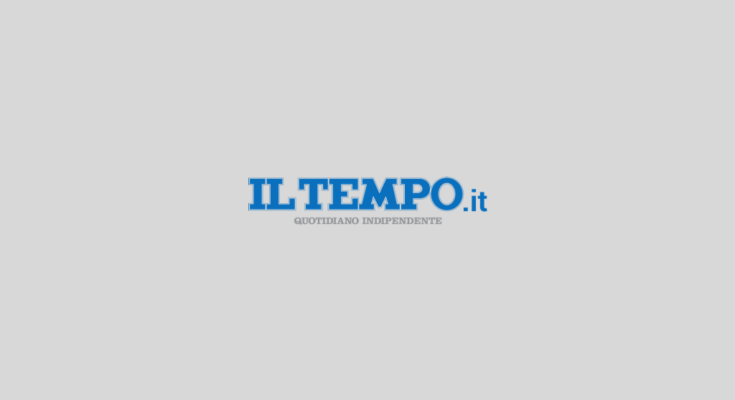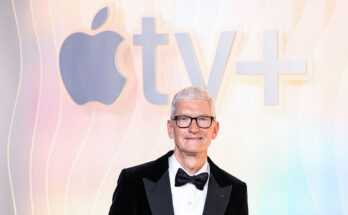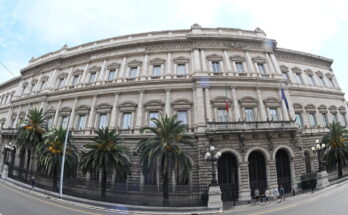Milan, 19 November (Adnkronos) – Doing better together: this is the aim of ‘Orbits-Dialogues with Intelligence’, a project signed by Action Manuela Ronchi and led by Luciano Floridi to accompany business leaders, citizens and young people through the challenges of the digital era. And this morning, on the first day of the ‘show-how’ which is now in its second edition, more than 500 participants including companies, experts, journalists, current and future leaders, all gathered to reflect on how each of us can contribute to ‘doing better together’ for a positive and proactive evolution in the context of the digital revolution we are experiencing. (Video)
An intense day, which combines philosophy, music, business and innovation around the theme chosen for the 2025 edition: semantic capital, which gives meaning to the world, allowing us to interpret and design it. It is intangible wealth that provides value to our lives and guides cultural and economic growth. Luciano Floridi opened his event with a speech dedicated to the nature, value and risks of semantic capital: “It is the wealth of ideas, language, art, experience and knowledge that we generate to give meaning to reality. This is what turns a set of data into meaning. Without meaning, life is not only less worth living, but also impossible to live”.
The philosopher shows how semantic capital today represents a meeting point between humans and artificial intelligence: machines do not create new meanings, but rework them. In fact, technologies are incapable of basing what they say and do exclusively on language, rather than on the experiences that generate it and that enrich it. The human task is not only to create but also to maintain, direct and protect meaning from degradation and information noise. In the future, semantic modals will determine how data is managed. A management that is not only dominated by those who have greater economic resources, but also those who have greater semantic capital. The latter is a very relevant concept for companies, because each company has its own semantic capital, which must be maintained and enriched.
One of the most exciting moments of the morning was the meeting between Luciano Floridi and Maestro Giovanni Allevi, with an intense exchange that combined philosophy and music in a reflection on the deep meaning of harmony, fragility and time. The afternoon session of the event then featured Luciano Floridi’s dialogue with Alessandro Benetton: together they initiated Orbits Academy Talks, a thematic session on the challenges of key business areas by 11 members of Orbits Academy, the first strategic track connecting companies, internationally relevant experts and educational institutions. They offer different but complementary perspectives on the topic of semantic capital and the role of artificial intelligence in redesigning the way we communicate, work, and innovate.
Massimo Sideri (Corriere della Sera) opened the session with a reflection: can humans think? If we are serious about dealing with machines then we have to start again from the basic questions: what is intelligence, what is innovation. Quoting Italo Calvino who reminds us to fight against the abstractness of language and remember that we never stop learning from nature. Claudio Calvino (Fti Consulting) explored the relationship between semantic capital and enterprise expertise, explaining how AI can amplify human knowledge by making it accessible and shareable, and Valter Fraccaro (Saihub) underscored the value of AI in resolving the complexity of organizational systems. Oreste Pollicino (Bocconi University) brought the debate back to constitutional ethics, noting that technology does not require a new Constitution but a new interpretation of the principles of freedom and solidarity, and Fabio Moioli (Spencer Stuart) spoke about the relationship between semantic capital and corporate transformation, defining AI as a general-purpose technology, a ‘new electricity’ capable of enabling other innovations.
Annalisa Reale (Chiomenti) explores the topic of leadership and ‘algorithmic management’, considering the need for clear governance and the right to explanation in the era of ‘AI bosses’. Giuseppe Stigliano (UCL School of Management) invites companies to consider semantic capital as a new strategic marketing asset, the basis of brand trust and relevance, while Marco Di Dio Roccazzella (Jakala) proposes a new paradigm for business value, where the power of AI will only be directed if it is oriented towards semantic capital. Adele Sarno (HuffPost) highlighted how, in a world where AI can generate everything but understand nothing, semantic capital remains the true compass of corporate communications, while Mirja Cartia d’Asero (Clessidra Group) emphasized the need to finance innovation with courage and confidence, so that Europe can compete on a global level. Finally, Raffaele Gaito (Ia360) highlights the theme of mindset in the AI era, inviting us to shift our attention from tools to a culture of change: “When we look around and observe the speed of technological progress and innovation, it is natural to ask ourselves: what is happening now?
The day ended with the ‘Companies telling their stories’ session, which gave voice to those who, every day, translate innovation into practice. In a video, Fortunato Costantino – director of human resources, legal & corporate affairs of Q8 Italia and professor of general theory of sustainability and social innovation at Ese (European school of economics) – invites us to reflect on the need for a more conscious relationship between humans and technology. “Artificial intelligence is not neutral: it is a mirror that reflects humanity, with its ambitions, fears and fragility,” he explains. This is why it must be regulated, not allowed to suffer: we must safeguard the centrality of the person, his or her rights and freedom of choice, preventing algorithms from becoming the sole measure of what is correct or efficient. Costantino underscored the importance of new educational and cultural models that combine scientific skills and critical abilities, so that technology continues to serve humanity and not the other way around.
Stefano Sperimborgo (AI & Data Lead) from Accenture – a global leader in the professional services sector that helps companies – lays out the company’s vision of the evolution of human-machine relations: “We have moved from tools that carry out human instructions to systems that learn by applying statistical inference on vast amounts of data at a speed that is impossible for humans. But if we want artificial intelligence to be truly useful, we must bridge the gap between technology and meaning, transfer collective knowledge into systems, and build a true ‘cognitive digital brain’, a network of shared intelligence value and responsibility is to enhance and connect individuals’ ‘cognitive digital brains’ in a ‘digital brain network’ (DBN) capable of generating broad benefits for businesses, SMEs, citizens and society.”
Alessandro Premoli (head of people, culture & organization) and Francesca Porta (head of It) from Autogrill – part of Avolta and the world’s first operator of catering services for tourists – spoke about the Ai Arena project, a training program to develop critical thinking and soft skills in corporate teams: “Ai accelerates innovation, but only humans, armed with knowledge and curiosity, can provide meaning. With Ai Arena we want to train ‘meaning decipherers’, people who are able to question technology and change it become a strategic tool while respecting the company’s ethical principles and fundamental values.” Autogrill also shows how AI can be a driver of internal cohesion and training, thanks to a sustainable innovation ecosystem that includes collaboration with startups and a dedicated pathway for young talent through the Next gen innovation cup.
Luca Peyrano (CEO – Cerved Group) explains the so-called semantic capital group: resources that link technology and meaning, data and belief, knowledge and action. Through an ecosystem that integrates companies like Cerved and Cedacri, the group is building an infrastructure that makes data a tool of trust, prevention and growth. From energy risks to climate change, from production chains to Made in Italy, every piece of information becomes a driver of competitiveness and social cohesion. Semantic capital is not just technology, it is also cultural: a shared infrastructure that turns knowledge into value for businesses, institutions, and entire countries.
Agostino Santoni, senior vice president of Cisco South Europe – a multinational company specializing in the supply of networking equipment – closed the session by inviting us to read our time as the new ‘Fourth Nation’: humanity is advancing towards the future, today, accompanied by a new ally – artificial intelligence. Not a threat, but a companion capable of expanding the boundaries of innovation, as long as society understands its potential and acquires the skills to manage it. Santoni highlighted how “talent is everywhere, but opportunity is nowhere”, and technology’s job is precisely to fill this gap.
‘Orbit’ is more than just an event. It is a format created to generate cultural impact and concrete transformation and which since its debut has involved a winning team whose vision produces important change. Luciano Floridi: digital ethics philosopher, ‘Orbits’ thinker, academic reference leading the debate on AI ethics. Manuela Ronchi, format strategist, strategic communications expert and in-depth event design. Sergio Pappalettera, artistic director, creative person who turns ideas into experiences.
“Orbit was created to return the quality of thinking to the center in an era that moves faster than understanding – says Manuela Ronchi, CEO of Action Holding and co-creator of the project together with Luciano Floridi -. Through the words of Luciano Floridi and all the protagonists of today we see that semantic capital is not an abstract concept, but a concrete resource: it is what unites people, companies and society, giving meaning to technology and direction to the future. Our goal is to continue building a place where ideas are transformed into action and knowledge becomes a driver of real impact”.
With its first day dedicated to business and professionals, ‘Orbits 2025’ affirms its call to create a bridge between thought and action, between ethics and innovation, now gearing up for its second day on November 20, completely dedicated to students and the new generation.



